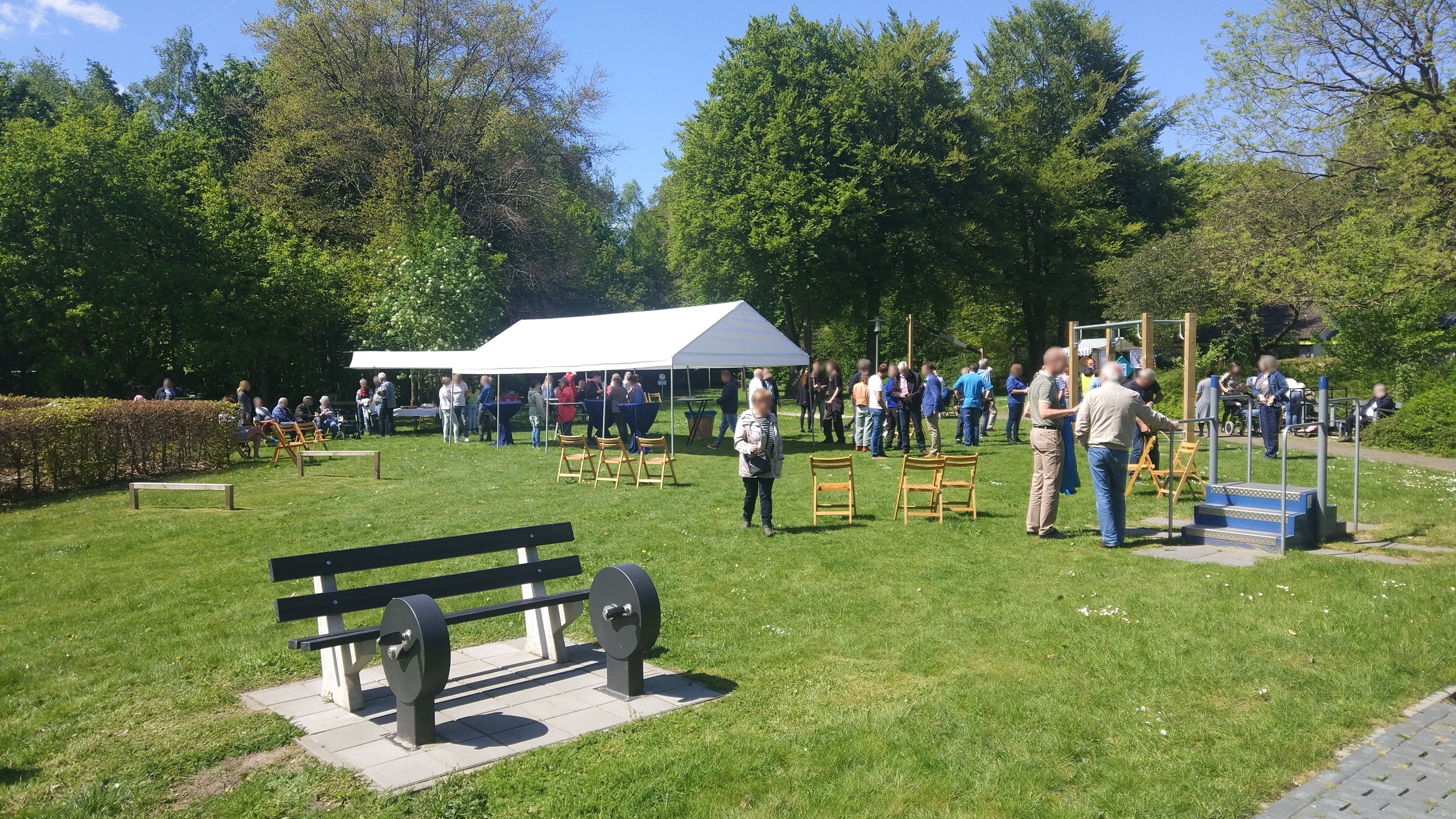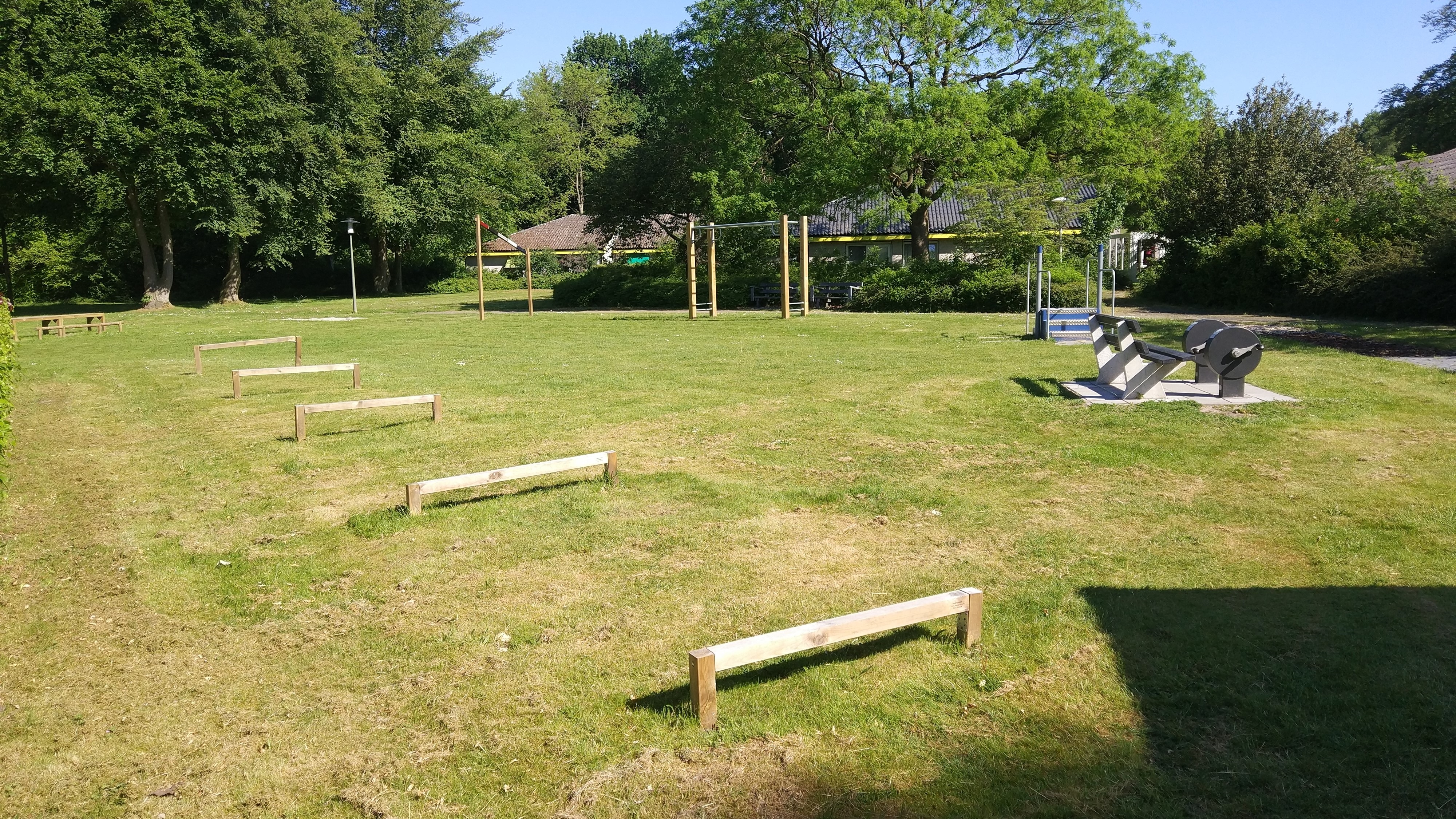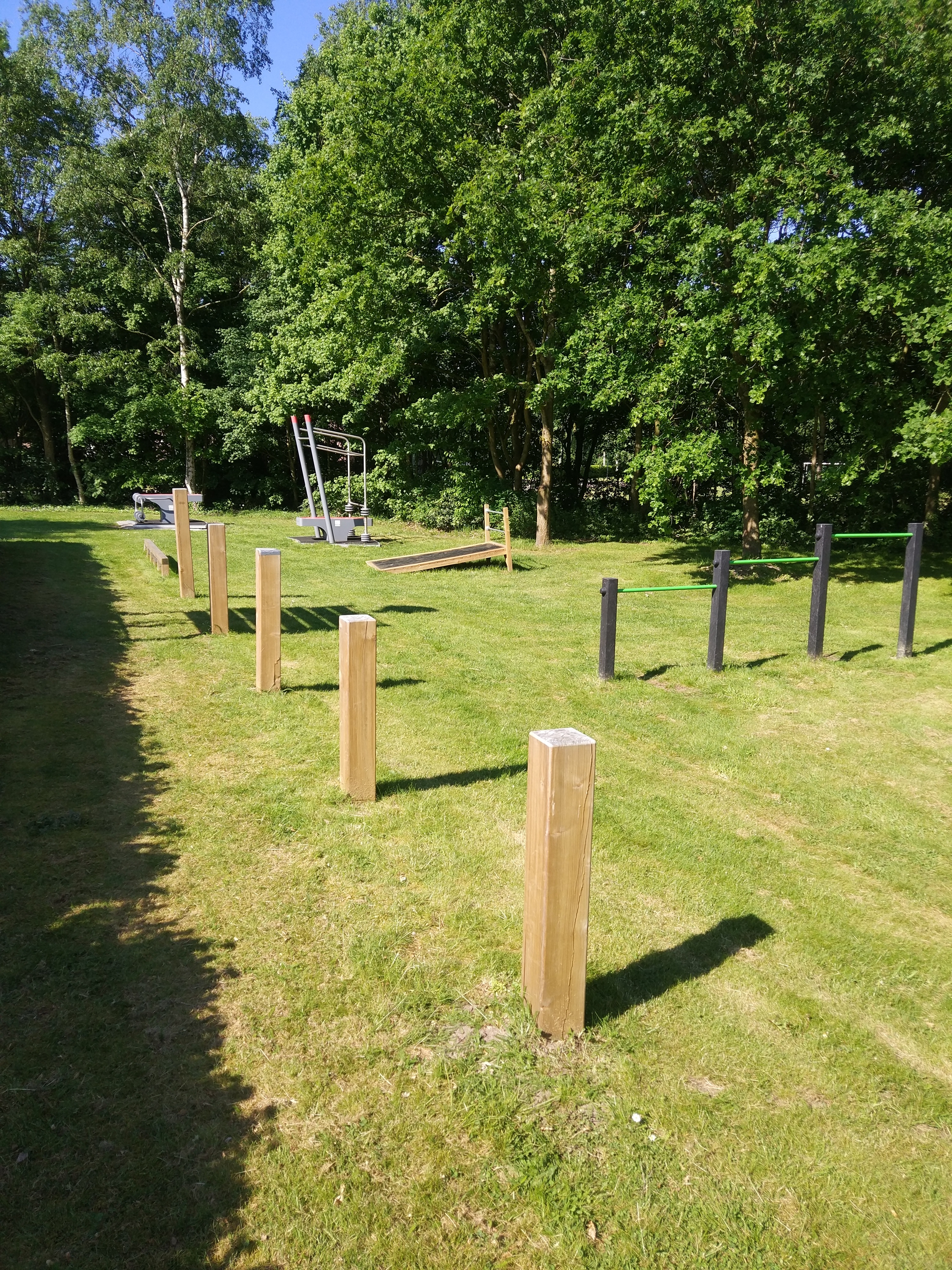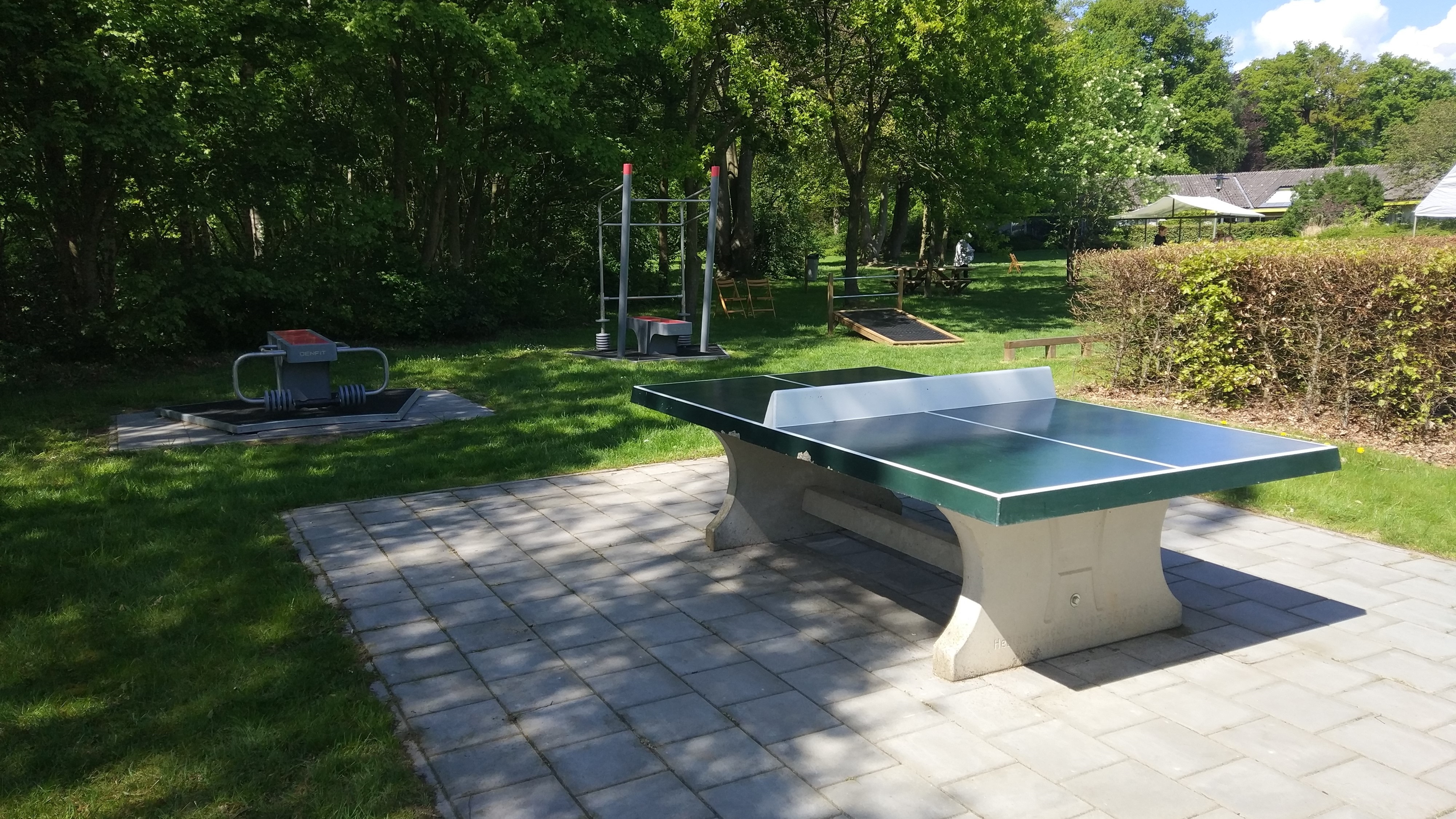By Jeroen Deenik @jdeenik, MSc

At GGz Centraal, the centre for mental healthcare with different clinics in the middle of the Netherlands, we have two psychiatric hospitals where people with severe mental illness can stay for a longer period of time. The majority of patients are diagnosed with schizophrenia or related psychotic disorders, while others are diagnosed with non-psychotic disorders such as mood or personality disorders. On May 3 2018, we opened a Dutch so-called Beweegtuin (exercise garden, freely translated) for our inpatients. These “exercise gardens” have become increasingly popular in the Netherlands and have the potential to increase levels of physical activity of people with severe mental illness. It widens the range of activities that they can choose from, and is freely accessible at any time of the day. An outdoor gym addresses the high levels of sedentary behaviour of people who stay at our hospital (84% during waking hours)1 and help to improve their poor physical health. Thanks to the effort and time from people within GGz Centraal, the activity was funded by donations and sponsorships of local partners and we are grateful that these organisations took the initiative to invest in and support our ambition. Moreover, part of the equipment was built out of wood by patients themselves during a carpentry workshop we held. At the opening, it was great to see how both patients and staff were proud of this. It contributed to some kind of ownership, whereby it is their ‘Beweegtuin’ now. At lunch smoothies and fruit were handed out as the dietitian spoke about healthy eating habits. After that, physiotherapy and occupational therapists presented different bikes that patients can borrow and ride at their leisure. The event was truly a multidisciplinary ‘lifestyle’ event.
This initiative has also became a local project with the village that directly borders our hospital. Although the outdoor gym was initially created for people staying at our hospital and the staff – who turned out to be sedentary 76% during waking hours1 – we encourage local people to use the equipment as well. In doing so, we hope that the gym can further help to destigmatize people with severe mental illness. For example, the local jogging group were inspired by the outdoor facilities and even asked how they could involve some of the patients who were watching. At the opening, everyone (patients, nurses, managers, activity coordinators, paramedical staff, funders and neighbours), tried out the equipment together and some patients found it entertaining to see that some of their nurses were new to the equipment or that they were able to win a game of table tennis against their manager!
Although the outdoor gym brings a lot of opportunities, we must recognize that its successful implementation only starts with this opening. Based on clinical practice we know that without any active support and help, patients are unlikely to use these facilities. This is in line with the lack of association we found between attitude/self-efficacy towards physical activity and the actual levels of activity.2 It is challenging to sustainably increase levels of physical activity in people with severe mental illness, as potential benefits that may motivate them (e.g. stress reduction and improvements in mood and physical health) are contrary to perceived barriers such as low mood and motivation, stress, physical comorbidities and side effects of medication.3 Therefore, we aim to include this outdoor gym into the daily routine of healthcare (e.g. in walks initiated by mental health nurses and programs delivered by psychomotor therapists, physiotherapists and activity coordinators), consistent with recommendations in several systematic reviews.4-6 We have had some positive experiences by integrating a multidisciplinary lifestyle enhancing treatment within our hospital in the past few years, which includes such supported and tailored activities and articles are expected to be published later this year. It even resulted in patients asking nurses to include more time for outdoor activities on the weekend, because “lying in bed or watching television, which makes me feel worse”.
As a part of this approach, we hope that this outdoor gym – collaboratively supported by staff, patients and local partners – will continue to contribute to improve the lives of people who stay at our hospital.



GGz Centraal @GGzCentraal, Utrechtseweg 266, 3818EW, Amersfoort, the Netherlands and the School for Mental Health and Neuroscience, Maastricht University, PO Box 616, 5200MD, Maastricht, the Netherlands
ORCID id: https://orcid.org/0000-0002-1463-8676
Correspondence to
Jeroen Deenik @jdeenik, MSc, PhD student, health psychologist and psychomotor therapist. j.deenik@ggzcentraal.nl
Thanks to Ann Gates of @exerciseworks and Simon Rosenbaum for their editorial assistance.
Competing interests
None to declare
References
- Kruisdijk F, Deenik J, Tenback D, et al. Accelerometer-measured sedentary behaviour and physical activity of inpatients with severe mental illness. Psychiatry Res 2017;254:67-74.
- Deenik J, Kruisdijk F, Tenback D, et al. Physical activity and quality of life in long-term hospitalized patients with severe mental illness: a cross-sectional study. BMC Psychiatry 2017;17:298.
- Firth J, Rosenbaum S, Stubbs B, et al. Motivating factors and barriers towards exercise in severe mental illness: a systematic review and meta-analysis. Psychol Med 2016:1-13.
- Farholm A, Sørensen M. Motivation for physical activity and exercise in severe mental illness: A systematic review of intervention studies. Int J Ment Health Nurs 2016;25:194-205.
- Stanton R, Happell B. Exercise for mental illness: A systematic review of inpatient studies. Int J Ment Health Nurs 2014;23:232-42.
- Vera-Garcia E, Mayoral-Cleries F, Vancampfort D, et al. A systematic review of the benefits of physical therapy within a multidisciplinary care approach for people with schizophrenia: An update. Psychiatry Res 2015;229:828-39.